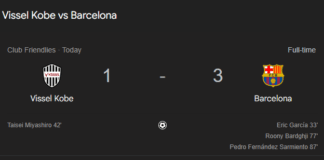For working professionals in India, salary is the most vital part of their livelihood. However, in some unfortunate cases, when an employee resigns or leaves the job, the company delays or withholds their final salary (pending salary). This situation can be mentally, emotionally, and financially distressing.
In this article, we’ll discuss how you can legally and practically claim your pending salary after resignation with step-by-step instructions.
🔍 First, Understand – What is Pending Salary?
Pending salary refers to the part of your salary or financial dues earned during your employment but not paid by the company. This is part of the Full & Final Settlement (FnF).
What does Full & Final Settlement include?
- Unpaid salary till your last working day
- Payment for earned/unused leaves
- Applicable bonus (performance or annual)
- Incentives or gratuity (if eligible)
- Salary for the notice period (if served)
📅 Current Legal Rule (as per 2024–25)
Under Indian labor laws, particularly the Payment of Wages Act, 1936 and the Industrial Disputes Act, 1947, any employee is entitled to receive their Full & Final Settlement within 45 days of leaving the company.
If the company fails to process the payment within this period, it may be considered wage theft, which is illegal.
📌 Step 1: Contact HR and Accounts Team
This is the most straightforward and non-confrontational step.
Send a formal email clearly stating:
- Date of resignation
- Last working day
- Pending amount
- Attach documents like your offer letter, relieving letter, salary slips, and bank details.
📧 Sample Email:
Subject: Request for Full and Final Settlement
Dear HR Team,
I, [Your Name], with Employee ID [ID], resigned from the company on [Last Working Date]. Kindly initiate the process of my Full and Final Settlement, including pending salary, leave encashment, and any other dues.
Thank you,
[Your Name]
📌 Step 2: Review Company’s Exit Policy
Every company has an employee handbook or HR manual where their FnF policy is mentioned. Some companies settle dues within 15 days; some take up to 30 days.
Review this policy to determine whether you’re still within the expected waiting period or it’s time for legal escalation.
📌 Step 3: File a Registered Complaint
If 45+ days have passed and there is no response from HR, you can file an official complaint online.
✅ 1. Ministry of Labour Portal
🔗 https://labour.gov.in
Fill out the grievance form and upload relevant documents.
✅ 2. EPFO / ESIC (if applicable)
If your salary was under PF deductions, you may also file a complaint with EPFO.
✅ 3. PG Portal (Public Grievance Redressal)
🔗 https://pgportal.gov.in
This is the Government of India’s official grievance redressal portal.
📌 Step 4: File a Case in Labor Court
If emails, phone calls, and official portals don’t work, filing a complaint in the Labor Court is your constitutional right.
How to File:
- Visit your State’s Labor Commissioner Office
- Fill out Form A or B
- Submit documents: salary slips, resignation letter, offer letter, email conversations
- No lawyer is required, and there’s no court fee
⚖️ Pro Tip: Keep copies of everything you submit for your own record.
📌 Step 5: File an RTI (For Government Employees)
If you were working in a government or semi-government institution, file an RTI to know the current status of your settlement.
💼 What If You’re a Freelancer or Contract Worker?
Freelancers and contractual employees also face pending payment issues. Here’s what you can do:
- Keep email proofs and written contracts
- Send a formal notice requesting payment
- For dues above ₹20,000, file a civil case in local court
- If you worked via a platform (like Upwork, Freelancer), raise a dispute directly on the platform
📊 India Salary Dispute Statistics (2024)
According to NCRB data 2024:
- Over 60,000+ complaints are registered annually related to unpaid salaries.
- Delhi, Maharashtra, Karnataka, and Gujarat see the highest number of wage disputes.
- IT sector and startups are top contributors to such complaints.
✅ Consult a Legal Expert (if the case is large)
If the amount is large or the company is influential, consider hiring a labor law expert. A legal notice from a lawyer can exert strong pressure on the employer to settle.
🔐 Your Employee Rights You Should Know
- Wages Act 1936: Timely payment of wages is your fundamental right.
- Gratuity Act 1972: Employees who’ve completed 5+ years of service are eligible for gratuity.
- Shops & Establishments Act: Each state enforces its own set of wage and termination rules.
- Industrial Disputes Act 1947: Defines roles and responsibilities of both employer and employee.
✅ How to Avoid Pending Salary Issues in the Future?
- Always submit a written resignation with acknowledgment
- Ensure you receive relieving and experience letters before exit
- Complete exit formalities and get HR clearance in writing
- Maintain a backup of all communication (email, WhatsApp, messages)
❓ Frequently Asked Questions (FAQs)
Q1: How long does the Full and Final Settlement usually take?
A: Typically 30–45 days post last working day.
Q2: Can a company withhold my salary?
A: No. It is illegal. You are entitled to wages for services rendered.
Q3: What if the company shuts down?
A: File a complaint with the Labor Commissioner and send legal notice to the company’s directors or owners.
Q4: Can the company deduct my salary for not serving the notice period?
A: Yes, but only for the duration not served. Full deduction is illegal.
📧 Email Format to Claim Pending Salary After Resignation
Subject: Request for Full & Final Settlement and Pending Salary – [Your Full Name]
To: hr@[companyname].com
CC: accounts@[companyname].com (if applicable)
Dear [HR Manager’s Name],
I hope this email finds you well.
I am writing to formally request the processing of my Full and Final Settlement, including the pending salary and any other dues from [Company Name].
I was employed as a [Your Designation] in the [Department Name] department, and I submitted my resignation on [Resignation Date]. My last working day was [Last Working Date], as per company policy.
Despite completing all handover procedures and formalities, I have not yet received the final settlement, including:
- Pending salary till [last working date]
- Leave encashment (if applicable)
- Bonus or incentives (if applicable)
- Any other eligible reimbursements
Please find attached copies of the following documents for your reference:
- Offer Letter
- Resignation Acceptance
- Last Payslip
- Relieving Letter (if received)
- Bank Account Details
I would appreciate it if you could kindly initiate the Full & Final Settlement process and let me know the timeline for the same. If any further information or documentation is required from my end, please let me know.
Looking forward to your prompt response.
Warm regards,
[Your Full Name]
[Your Employee ID (if any)]
[Your Phone Number]
[Your Personal Email ID]
[Your Address (optional)]
⚖️ Disclaimer
This article is intended for general informational purposes only. The content is based on legal sources, government portals, and expert advice. It does not constitute legal counsel. Readers are advised to consult a certified lawyer or labor official before taking any action. AajPatrika.com is not responsible for any loss, dispute, or legal issue arising from the use of the information in this article.






